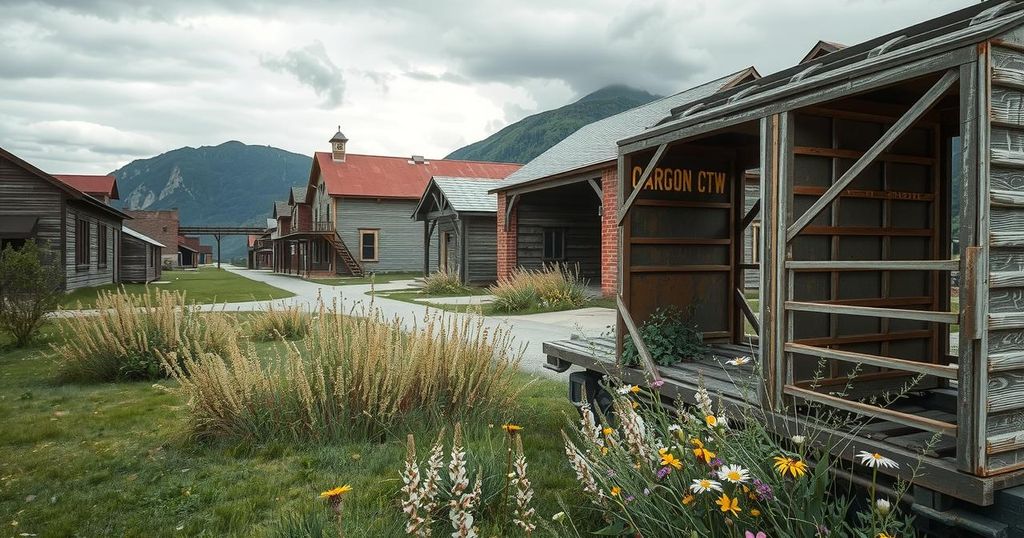A strike in Om Laarayes, Tunisia, closed schools and businesses as locals protested the poor state of infrastructure and health care following a fatal road accident. The URT labor union organized the protest to advocate for urgent improvements. Despite its phosphate wealth, the town remains underdeveloped, highlighting socio-economic disparities prevalent in inland Tunisia.
On Thursday, a general strike in Om Laarayes, a significant mining town in Tunisia, led to the closure of schools and businesses. This protest was triggered by the town’s deteriorating infrastructure and lack of adequate health care, following a tragic road accident that resulted in six fatalities and nine injuries. The regional URT labor union, affiliated with the UGTT trade federation, organized the strike to advocate for essential improvements in the community’s facilities.
URT secretary-general Mohamed Sghaier Miraoui highlighted the critical situation, indicating that all local institutions had ceased operations in response to the declining infrastructure. He reported that residents of the region have been outraged due to their neglected conditions following the recent traffic collision. “Such incidents are frequent because we still lack basic infrastructure. Public transport is inadequate, and our hospital is poorly equipped even for emergency care,” Miraoui stated.
Despite being rich in phosphate resources, Om Laarayes remains an underdeveloped area, home to around 40,000 residents. Miraoui noted that the mining city should have better infrastructure due to its natural resource wealth. The ongoing socio-economic difficulties experienced by many inland regions of Tunisia present a stark contrast when compared to the affluent coastal cities.
Since the 2011 revolution, which ousted long-time ruler Zine El Abidine Ben Ali, there have been frequent protests in these neglected regions. People in areas like the mining hub of Gafsa have been vocal about their demands for improved infrastructure and job opportunities by revitalizing phosphate production. Tunisia’s phosphate output has declined from eight million tons in 2010 to only half of that in recent years due to insufficient investment and persistent social unrest.
The general strike in Om Laarayes underscores the urgent need for infrastructure improvements and effective health care in the region. As residents react to ongoing neglect and safety concerns exacerbated by tragic accidents, the call for action highlights the socio-economic disparities observed throughout Tunisia. The ongoing protests emphasize the dissatisfaction of residents in mining regions regarding inadequate support despite the country’s natural resource wealth.
Original Source: www.arabnews.com






